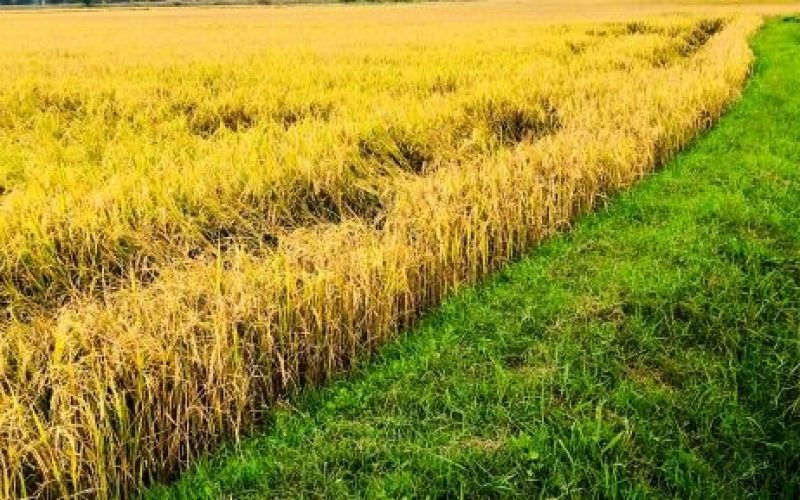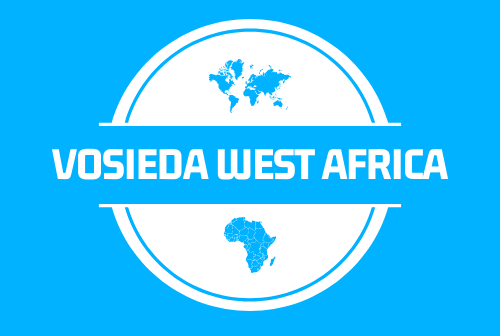Food Security & Livelihoods Enhancement
We are endeavoring to transform smallholder agriculture in Liberia and the Mano River Basin of West Africa into a prosperous family enterprise, thereby replacing the current struggle for survival.

VOSIEDA aims to enhance smallholder farmers’ agricultural systems and resilience to climate change by understanding vulnerability factors and developing recovery strategies. For details on the implementation, please see our programs below.
We admire smallholder farmer’s resilience, spirit, and hard work bringing essential food to communities. We support their success journey, believe in their ability to create change and create thriving small-scale agriculture. Collaboration can make it possible. VOSIEDA works to empower smallholder farmers reach new heights towards abundance and fulfillment!
Why work for Food Security & Livelihoods Enhancement?
Small-scale farming is the main economic activity for poor families in Liberia and the Mano River Basin. However, farmers need more resources, training, and funds, leading to low productivity and difficulties in profit conversion. VOSIEDA empowers rural women, girls, and boys by providing access to quality seeds, agricultural training, market connections, and other critical inputs while empowering them to address inequalities affecting small-scale agriculture.
Our cross-cutting priorities to sustainably grow smallholder food systems in Liberia and the wider West African region.
Climate – Smart Agriculture
Liberia and the Mano River Union Basin are regions rich in forests, but unfortunately, approximately one-third of its soil has become degraded. However, we have found an innovative solution that can help prevent this issue and even regenerate degraded lands.
Conservation Agriculture is a farming system that promotes the maintenance of a permanent soil cover, minimum soil tillage, and diversification of plant species. This technique enhances biodiversity, natural biological processes above and below the ground surface, increases water and nutrient use efficiency and results in improved and sustained crop production.
At our organization, we work closely with small-scale farmers, adapting our practices to reflect their local conditions and needs. We follow three main principles to help farmers realize the benefits of Conservation Agriculture: minimum mechanical soil disturbance, permanent soil organic cover, and species diversification through varied crop sequences and associations. Through these practices, we aim to promote good soil structure, improve plant nutrition and prevent pests and diseases.
Agricultural Inputs & Training Services
In Liberia and the Mano River Basin region, basic technologies such as improved seeds are often unavailable. The minority of smallholder farmers must travel to the big cities to buy a bag of chemical fertilizer or a can of improved seed, often imported from oversea. However, the majority of farm families are unable to access the start-up capital to make the trip or to purchase a bag of chemical fertilizer. Besides, even those that can afford often struggle to optimize their farming output without proper training on agricultural best practices.
VOSIEDA strive to deliver high-quality farm inputs within walking distance of small-scale farmers at the start of their planting season. Throughout the season, our staff delivers in-field training on best farming practices. And at harvest time, our team provide farmers with the tools and knowledge to safely store their harvest and sell during the off-season for a considerable profit.
Financing and Capacity Building of Farmers Organizations
Smallholder farming dominates agriculture in Liberia and the Mano River Basin region. Nevertheless, most smallholder farmers use traditional methods or low-resource technology, handed down to them from generations. Besides, most of them rarely leverage their numbers to secure better services, access inputs, markets, and educational services for their members. Their situation is due to a poor understanding of how to access those services. They also poorly govern and manage their organizations and are influenced by the unfortunate lack of trust that characterizes the local communities in which they operate. In response, VOSIEDA is working to enhance the institutional capacities of these organizations and enable them to benefit the farmers they serve. We also work to link farmers’ organizations to the markets and build the capacities of farmers’ organizations to influence policies in their favor.
Besides, we provide farmers’ organizations with asset-based loans that include high-quality seeds and fertilizer and offer a flexible repayment system that allows small scales farmers to pay back their loans in any amount throughout the loan term.
Post-Harvest Handling and Market Facilitations
Studies and realities have shown that small holders’ farmers in Mano River Basin often sell surplus production at farm gate prices, receiving only 10% to 20% of the sale price, with the rest eaten up by various transaction costs such as transportation and post-harvest losses. We are working with farmers to improve market opportunities; access to market information and increase the demand for commodities by developing markets for alternative uses, such as processing and value addition.
We offer transportation and crop storage solutions for the farmers we serve. We also provide smallholder farmers’ market information and teach farmers about market fluctuations. We aim to empower small-scale farmers to sell their crops to make maximal profits.
Safety Net (cash transfer and in-kind and food assistance)
According to the World Bank, an estimated 36 percent of the very poor escaped extreme poverty because of social safety nets. This provides clear evidence that social safety net programs—which include cash, food, in-kind transfers, social pensions, public works, and school feeding programs targeted to poor and vulnerable households—make a substantial impact in the fight against poverty. Data also shows that these programs lower inequality and reduce the poverty gap by about 45 percent.
Accordingly, VOSIEDA supports and undertakes sustainable and affordable safety net programs that protect families from the impact of economic shocks, natural disasters, crops failures, and other crises. Our safety net interventions range from cash transfers, in-kind, and food assistance to public works. These social safety nets have positive and significant impacts on education, health, and food security, but also promote households’ ability to generate income that can lead to positive effects in local communities.
